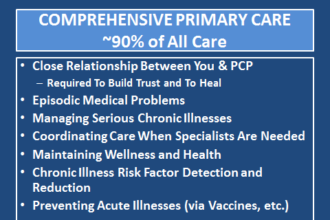Within the past 25 years, the World Health Organization (WHO) has identified mast cell activation disorder (MCAD) as a rare disorder. Those who are diagnosed have many different symptoms.
We will discuss potential symptoms, diagnosis, and treatment, as well as answer this question: Can insurance companies drop you if you have this disorder?
We’ll also go over how to cope with this disorder and different ways to avoid acute episodes, particularly mast cell activation syndrome (MCAS).
Potential Symptoms of Mast Cell Activation Disorder
Everyone deals with MCAD differently; thus, there are different symptoms for each person. Below we will look at some of those symptoms in specific categories.
Skin
If you have this syndrome, you might notice that you develop hives or rashes. You also get sweaty, flushed, and itchy skin.
Throat and Mouth
You may experience having swollen lips or throat. You will also experience itchiness in these areas.
Note: If you find that your throat is closing on you, go to the nearest emergency room and get some help. You could be going into anaphylactic shock.
Lungs
You may find that you start to wheeze, and it is more difficult to breathe. Again, should you experience this, have someone take you to the nearest emergency room or call 911. Do not wait.
Intestines
You may experience digestive issues as a result of having an MCAD. You may deal with nausea, cramping, diarrhea, and abdominal pain.
How to Get Properly Diagnosed
In most cases of MCAD, doctors diagnose you based on the treatments they give you. For example, if you’re given epinephrine and find that your symptoms calm down, then the doctor knows for sure that you have MCAD.
There are also tests like urine tests, blood tests, and tissue biopsies that can help doctors diagnose you, but overall, the most effective way is to give you treatment and see how your body reacts.
The Best Treatment for Mast Cell Activation Disorder
Because mast cell activation disorder is similar to the body having an allergic reaction, epinephrine, antihistamines, and aspirin are very helpful in dealing with inflammation that happens during acute episodes and on a day-to-day basis.
Common examples of antihistamines include Zyrtec, Benadryl, and Allegra. Be mindful that these drugs can make you tired, so be sure to take them when you know you don’t have anything important to do.
Can health insurance companies drop you for having MCAD?
To get treatment for MCAD, you would need to see an allergist. Thankfully, most insurance plans cover their services, making it less likely for a health insurance provider to drop you for having MCAD.
If you reach your deductible before meeting with an allergist, it’s all the better because insurance will fully cover any allergy tests or treatments you may need.
Avoiding Acute Episodes With Mast Cell Activation Syndrome
Having acute episodes of MCAD or MCAS can be very stressful. Below are some ways that you can keep from flaring up.
Maintain an Antihistamine Diet
Histamines are chemicals that your immune system makes to ward off allergens. With MCAS, histamines can trigger an acute episode, resulting in the symptoms we discussed previously.
To avoid that, these foods are perfect antihistamines that keep flare-ups at bay:
- Proteins like eggs, meats, and freshly caught fish
- Quinoa or rice
- Fruits that are not citrusy and not avocados
- Almond milk or coconut milk as a substitute for dairy milk
- Fresh vegetables that aren’t tomatoes, spinach, or eggplants
It would also be good to cook with olive oil. Everything you eat must be fresh. Histamines are in these foods listed below:
- Fermented or pickled foods
- Leftovers
- Alcohol
- Cured meats
- Fish from a can
- Fruit like berries and citrus fruits
- Preservatives
- Ketchup
- Dairy products
- Yeast
- Vinegar
People with MCAS should avoid these foods as much as possible to reduce the risk of an acute episode.
Be Wary of Your Environment
Besides foods, you should avoid too hot or too cold temperatures, insect bites, mold, airborne chemicals, and smoke to keep you from getting a flare-up.
Improve Your Gut Health
The stomach is an integral part of your overall immune system. If you can keep your gut healthy, you could keep from getting an MCAD flare-up. Probiotics are great ways to improve gut health and can be bought over the counter or prescribed by your doctor.
Take Supplements and Vitamins
Along with probiotics, supplements and vitamins can help you manage your MCAD. Vitamin C, vitamin B6, and omega-3s are all excellent sources of nutrients.
Other supplements you can take include alpha-lipoic acid, N-acetylcysteine, SAMe, and riboflavin.
Note: Always consult with your doctor about which supplements to take.
Remove Stressors From Your Life
Your body can be sensitive and can react depending on how much stress you have in your life. Removing these stressors can significantly reduce the likelihood of you experiencing an acute episode.
Make sure you are taking care of yourself, getting enough sleep, and exercising when you can. Don’t overdo it, though. Yoga or light walking can be beneficial against MCAD.
Ensure that you are taking care of any emotional stressors in your life as well. It’s not easy living with a chronic illness. Journal your emotions and experiences with MCAD and talk to a counselor if you need extra support.
How to Manage Being Chronically Ill
Sickness is difficult as it is. It’s even more challenging when you have a chronic illness. Thankfully, in the case of MCAD and MCAS, there is treatment and ways to keep from experiencing too many flare-ups.
Remember to take each day as it comes and to take baby steps. In some cases, MCAD can get progressively worse over time but don’t give up. Do your best to maintain your symptoms and reduce your pain with an antihistamine diet, exercise, and supplements.
Always consult with your allergy specialist about the right treatment plan for you. Feel free to use what you’ve learned here to guide you.







